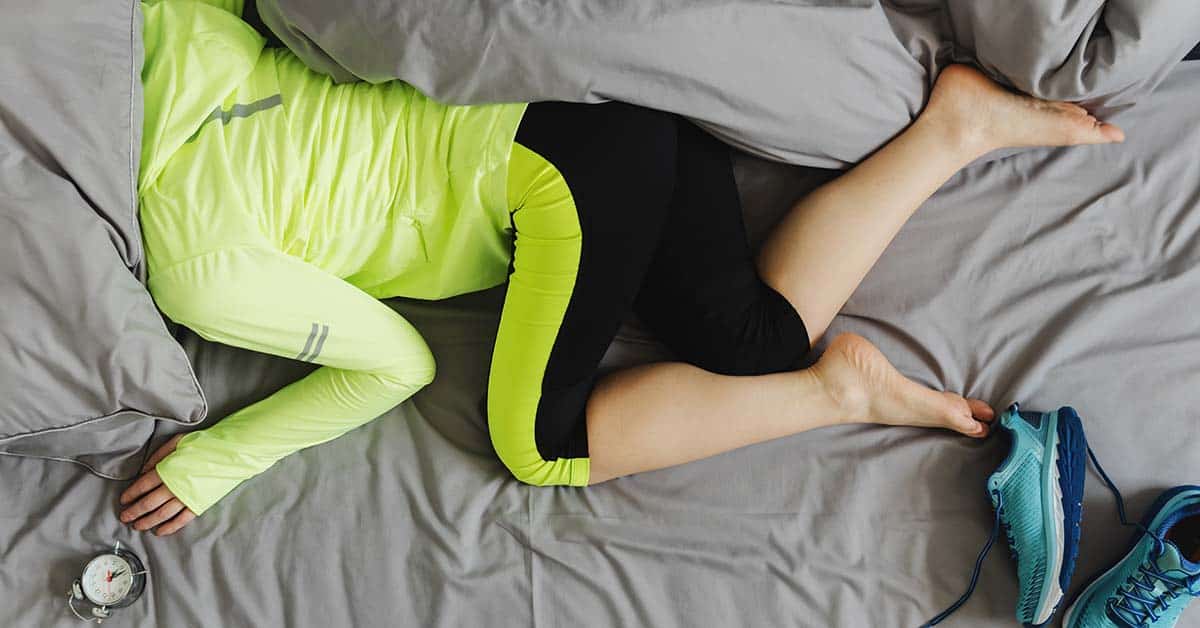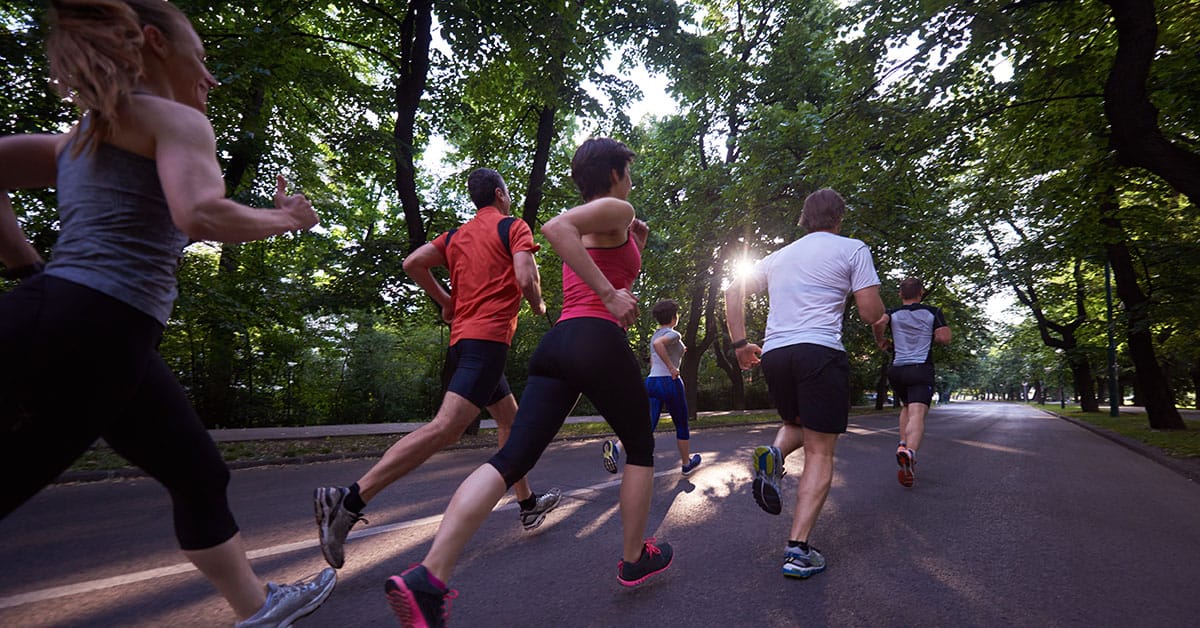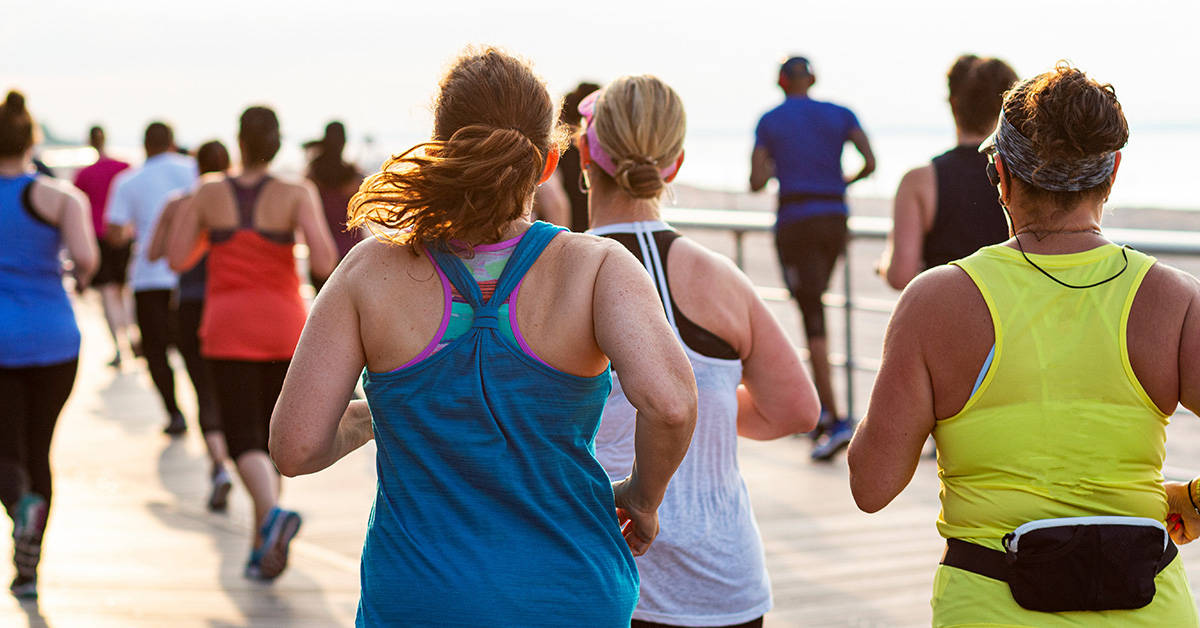The Importance of Sleep for Runners (And How to Improve Yours)
It’s no secret that many adults living in the U.S. don’t get enough sleep and that the COVID-19 pandemic has disrupted sleep patterns among the majority of adults. The Centers for Disease Control and Prevention (CDC) recommends seven or more hours of sleep per night for adults aged 18 and older (and more for older adults). However, it’s easy for us to skip a whole night’s sleep in favor of balancing other priorities, including our training. The importance of sleep for runners can’t be overstated. Sleep is essential to the recovery process from training, as it helps our bodies regulate the hormones involved in muscle growth and metabolism.
Here are a few reasons you’ll want to prioritize sleep during your training and tips for optimizing your sleep.
Sleep helps repair and build tissue.
You might be surprised to learn that muscle growth doesn’t happen during training. In fact, intense training usually results in tiny tears in your muscle tissue. When your body repairs these tears, your muscles grow, and the tissue becomes stronger and larger. Sleep is essential to the muscle repair process because your body secretes human growth hormone (HGH – a key component of muscle repair) during the deep stages of sleep.
Moreover, your body will adapt to produce more HGH when training intensity increases, enabling you to recover faster and continue building in your training progression. Without adequate sleep, it’s more difficult for your body to repair and build your muscles. Going too long without proper sleep could ultimately hinder your training.
Sleep can improve your running performance.
A 2011 study of basketball players at Stanford University found that increased sleep is associated with improved athletic performance, including speed. The researchers also saw improvements in the athletes’ accuracy, reaction time, and overall mood. These findings point towards the benefits of sleep for runners, especially during training to improve your speed.
As an added benefit, getting adequate sleep is associated with more favorable perceptions of effort during exercise, while sleep deficiency is related to increased perceptions of effort and reduced performance.
Sleep can help regulate your appetite.
Research has shown that sleep deprivation is associated with appetite dysregulation. A lack of sleep can affect the hormones that cue hunger and satiety.
For example, when we’re sleep-deprived, there is an increase in the hormone involved in appetite and a decrease in the hormone that signals when we are full, resulting in constant low-grade hunger. This can complicate your efforts to regulate your diet during training and can be frustrating for distance runners who may already have difficulty getting sufficient fuel while training. When you’re meeting your body’s sleep needs, your body is more able to regulate these hormones.
Although the CDC recommends at least 7 hours of sleep per night for adults aged 18 and older, your individual sleep needs may vary. An excellent way to assess whether you’re meeting your sleep needs is to track your alertness throughout the day. If you’re having periods of drowsiness (and you’re healthy otherwise), you may want to think about increasing your sleep.
To maximize your sleep, consider these tips:
- Avoid heavy meals, alcohol, caffeine, and strenuous exercise within three hours of bedtime
- Keep to a consistent bedtime and wake time, even on weekends
- Avoid blue light from electronics before bed, if possible
- Consider adding a relaxing routine around bedtime. For example, drink a cup of (caffeine-free) tea, take a warm bath or shower, etc.
- Keep your bedroom quiet, dark, and cool.
Think of your sleep hours as a part of your training plan. Although adding more sleep to your schedule might be difficult in the short term, the long-term benefits to your running performance (and your overall health) make the time investment in your sleep worthwhile. And if you’re still stuck on how to integrate more rest and still meet your running goals, Sunrise Running Company is always available to help you develop a training plan that fits into your life.
A Training Plan that Works for You.
Our collection of running plans will help you train year-round. From 5k to a 100-mile ultramarathon, we have a training plan built for your experience level and goals. Every plan is delivered via Final Surge, allowing you to sync workouts across devices, receive daily reminders of workouts and activities, and analyze workout and target zone details. Get started today with a training plan built for you, view our running plans here.










